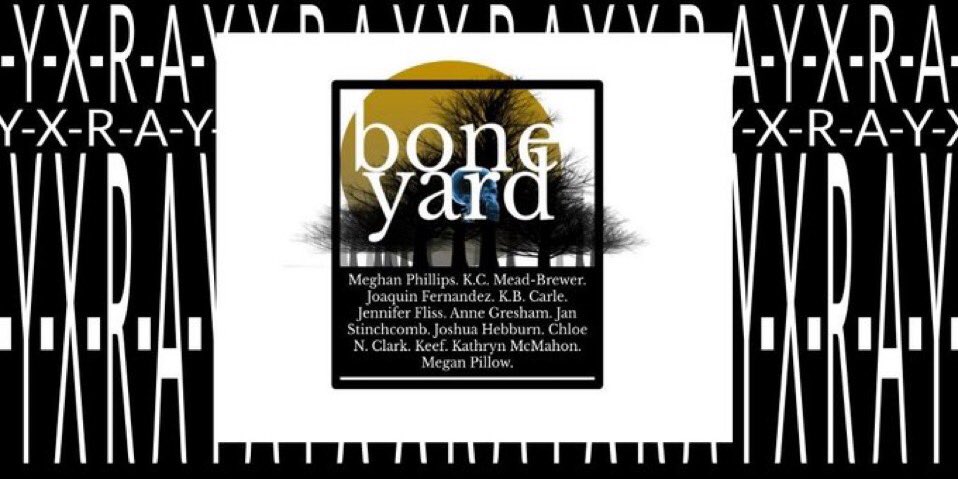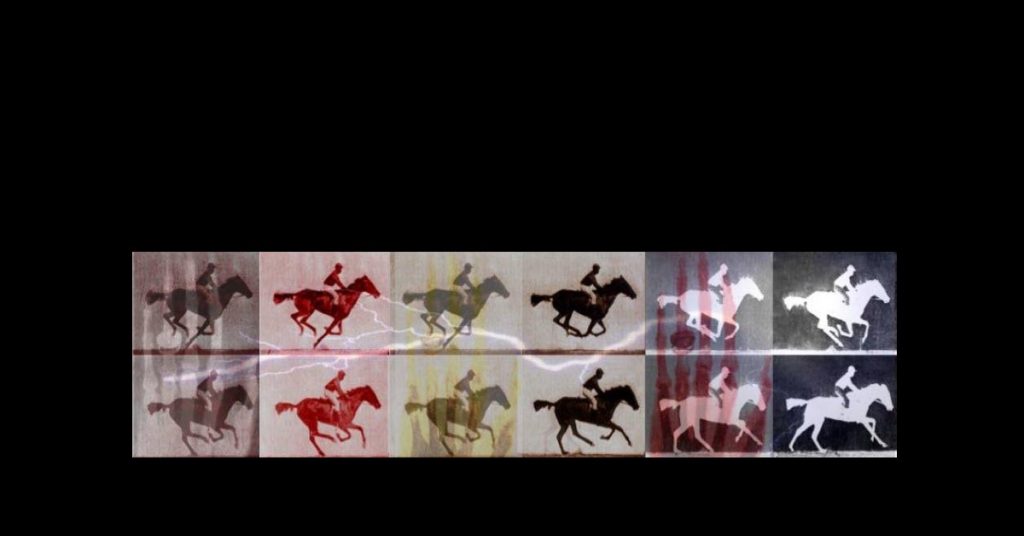
THE HORSES, THE HORSES by John Torrance (Megan Pillow)
All in all, it’s a good place to stop for the night. There’s little work to be done and a beauty of a view: a tranquil lake at the bottom of a grassy hill, lush and electric green beneath the early evening sun. No other cattle to crowd them. After they put up tents, perhaps a bit of play to shake off the day’s ride: a tune on Morton’s banjo. Then grass for the cattle and grub for the men: canned beans, or maybe a rabbit that’s a touch too slow, something that makes the belly full without turning it. They’d learned that lesson with the prairie dogs near Jackson Hole.
While Amos and Morton unsaddle the horses and shoo the cattle, Jack is staring at something. Amos shakes his head. Still distracted. Watching the animals. Amos watches the grassland, which looks like his palm when he touched it to the barn that time and drew it away, wet and green and dripping great dots of color onto the bleached ground, leaving a half dozen lines trailing dull across the wood like a boy had run his hand there instead of a man. The memory of those fingermarks makes him shiver. They’re still on the side of that barn in Cheyenne, as if the ghost of him is running its fingers along the wall.
By the time all the tents are up, it’s dusk, and the three of them are worked out. No time for music. Clouds are gathering: big, dark, and they bring a chill. No wind. Just a slow, sneaking cold, like an icehouse door left open too long. Amos winds the rope that tethers the (quiet, quiet) horses to the makeshift hitching post till there’s no more play. Morton spoons beans onto tin plates. Amos makes a face but takes one, hands another to Jack. But Jack isn’t paying a lick of attention. His face is drawn, dull. He’s staring at the horses (are they staring back?). Where Jack’s looking, there’s nothing but horses. He’s been restless the past few nights, woken Amos with his whispering. Mornings, he’s always sitting by the dying fire, his eyes bruised, a blanket around him.
What’s wrong? Amos always says.
The horses, says Jack. The horses.
Amos elbows Jack. He takes the plate without taking his eyes off the horses.
Boy’s got a case of the creeps. Just one more night (there’s nothing to be afraid of), we deliver the cattle, and we can all go home.
The cold is all around them before the beans are gone, needling its way inside their clothing so quick that they all turn in. There’s no more light to work by anyway. The roiling clouds have blotted out the moon, the stars. It’s so dark they couldn’t see a pack of wolves hunting them down the hillside. Best to bury under the blankets and sleep till morning. Amos pulls back his tent flap. Jack is standing at the mouth of his own. His eyes are like the gleam of water at the bottom of a well. Likely Jack is getting no sleep at all.
Amos hasn’t been asleep long when a sound wakes him. Quiet, then again: hooves pawing the dirt, playing at something. He clicks his lamp on, lifts the tent flap. The horses are loose from their hitch, standing in a line, their necks close as a clutch of flowers. All of the cattle are gone. He clicks the light off now. He’s tired. His head makes shit up. These are good horses. They won’t (hurt us) disappear. Cattle are probably just over the hillside. He clicks the lamp on again, looks out. Midnight, a horse he’s had since he was a colt, turns his head towards him. His eyes shine like dimes. Out of the dark, Jack is whispering.
The horses. The horses.
I need sleep, thinks Amos. He clicks the light off and hopes for sleep, closes his eyes.
Then, again: hooves. Closer. He clicks the lamp on, lifts the flap. The horses are a few feet away now. Steam rises from their noses like smoke from distant fires. Then the lamp begins to die and he is suddenly terrified. The light flares. Amos can see the rise of Midnight’s chest, the dull constellation of scars spanning his ribs where Amos uses the crop, digs in his spurs.
Good boy, he whispers.
Midnight watches him with gleaming eyes.
Amos’s lamp sputters out. The darkness terrifies him. Anything could be out there. Nothing makes sense in the dark.
The, the sound of hooves again. Closer. Closer.
The horses, whispers Jack. The horses.
Amos presses the switch and the lamp sputters on for a moment and off, and he’s in the dark again all alone, his chest heaving, and light again, then none and he’s struggling, working the switch but the light’s down to nothing again, and he’s desperate no more playing with these fucking animals but the lamp cuts off again and it makes a scream swell in his throat and Jack is whispering again and again the horses the horses again and again maybe this is a dream maybe maybe maybe I am that green-palmed ghost haunting the side of the barn in Cheyenne and maybe I’m still that dull good boy but then the lamp clicks on, and his breath shudders in his throat like a light.
Hooves paw the ground just outside his tent now.
The damp from Midnight’s nostrils wet the flap like breath against a windowpane.
The lamp goes out again.
Amos can hear the click of the bit, like bone, between Midnight’s teeth.
Maybe I’m not here at all I’m not here I’m not but in another field somewhere. Maybe I’m in a parlor yes or at a hotel bar blacking out from drink the dredges of. Maybe I’m walking across the bathroom of room 237 to join a woman in a great green tub. Maybe there’s no escape all this is fake the work is for nothing and no play was a better plan but makes a mistake. Maybe maybe Jack was right maybe maybe I’m stuck in a snowdrift slowly freezing maybe I’m not shining but maybe I’m a dull boy maybe I’m alone in some haunted hotel maybe just writing a novel about this. Maybe -
the lamp clicks on and he sees it then oh God and the horse takes the shape of something, something, something and then oh then it blacks out the sky what is it dear God -
the words were here all along.
Maybe this is the end.
Or maybe
(all my words in the world won’t work to save me and this is the end of time and no nothing will change it you can’t do a thing the play is dead it’s the end I think it makes me terrified of what’s coming but only Jack knows he knows it’s the end times, isn’t it? I am a dull dead boy now)
it is the beginning of something new.
Maybe all all it is work and no play no play and no play the beginning the beginning makes Jack of something of something a dull boy new something new.
Maybe all all it is is work and no play no play and just no play the beginning the beginning makes Jack of something of something a dull boy new something new.
Maybe all all it is is work and no play no play and just no play the beginning the beginning makes Jack of something of something a dull boy new something new.
Maybe
All work and no play makes Jack a dull boy.
All work and no play makes Jack a dull boy.
All work and no play makes Jack a dull boy.
All work and no play makes Jack a dull boy.
All work and no play makes Jack a dull boy.
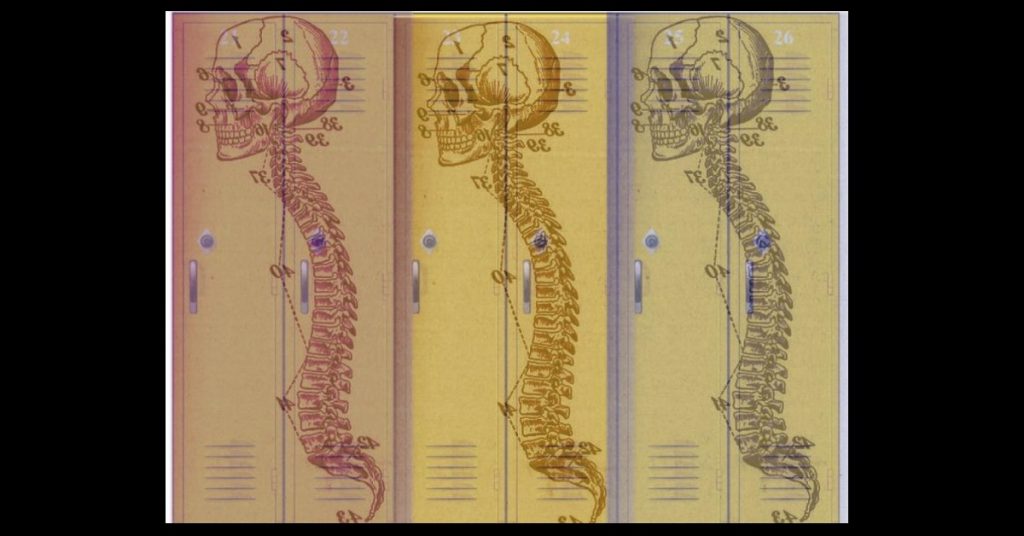
(IT’S NOT LIKE CLAIRE DIDN’T BRING IT ON HERSELF) by Jennifer Fliss
The indigo sky informed all of them that it would soon be time. That the children as clowns and superheroes and princesses would be stuffed full of Reese’s and candy corn and rolling in their little beds positively asphyxiated with the sugar. The teenagers were dressed in threadbare tie dye t-shirts, fringed leather vests. Claire wore bellbottoms and a crop top. She had been about to pull on a long-sleeved shirt. (Ben said don’t.)
Doris’s house was not what you’d expect. A rambler, off-white brick and something that was not brick but just as ugly. The numbers, 10220, hung off nails and threatened to drop and then who would find her then?
It had been raining all week. Moisture clung to the blades of grass and ghost-fingered branches clasped above their heads, as if in prayer. Here the leaves and the apples had fallen early.
Above them, hundreds of crows sang their murderous song. Two blocks away, Eve Lake. If it were summer they would hear the warble of frogs and have their skin lanced by mosquitoes. Late night picnickers would be enjoying the ever sun. Today they could feel the future phantom of winter. Claire chewed her lips and picked at her fingernails.
Doris lived with her grandson Jake. Jake flicked his retainer in and out on his tongue and wore a leather duster that he said had been his father’s. (His grandmother told him this lie because he wouldn’t wear a jacket otherwise.)
“I don’t know if I really want to do this,” Claire said.
The crows fell silent. Across from Doris’s house, an automated eight-foot witch cackled. Marcus started humming and Ben added a low growly beatbox. The trio had been stand outs in The One Notes, the school a capella group. Claire added a high note.
“Shut up,” Ben said.
Every year, a senior is selected as lead. (Everyone said Jake was coming out of his shell and weren’t they all so glad about that!?)
A gust of wind unfurled off the lake. A shrill bird.
“The fuck was that?” Ben said.
“An owl, what do you think?” Marcus said and slung the burlap bag over his shoulder. (It was not an owl.) The bag was already heavy. They shuffled along the driveway toward the house.
Shiny wrapped candy waited in a bowl under the stuttering porch light. A shower was running and there was singing. (Jake was an excellent singer, but most people didn’t know that.)
Ben’s father had started The One Notes thirty years earlier.
At the front door, Marcus reached for a candy bar but Ben slapped his arm back.
“Dude, they’re Hundred Grands. We hit the Halloween lottery,” Marcus said.
Claire wheezed and tried to control her breath, as if you could do such a thing, control the thing that keeps you alive. She thought about the kiss she and Ben shared earlier that day. Under the bleachers at lunch, stealing a smoke, like always. But when she said fuck, it’s cold, Ben leaned over, locked his lips on hers, and exhaled the nicotine directly into her throat. She sputtered and he put one hand up her shirt in an instant, the other still held onto his burning cigarette. When she finally got enough air to cough, he pushed her back. Slut. He laughed and Claire was unsure what had changed. The soft parts of her mouth still burned.
They had wandered back to the cafeteria and he said he was looking forward to the auditions for the lead that afternoon.
That evening, on the dark side of the sun on Halloween by a lake, the teenagers stood with a bulky burlap bag at their feet.
“Do it,” Ben said. Marcus rang the doorbell and they fled toward the lake.
No one came to the door. Claire was alone. She didn’t see where Ben and Marcus had gone but she had a straight view of Doris’s door. She thought she saw movement. Her breath grew tight. She heard the creak of the door.
It was Jake, hair wet, slicked back, towel at his waist. Bare chest like snow in the night. He looked up and down the street (don’t they always?) and only after a moment registered the bag. He nudged it.
Doris appeared over his shoulder. “What is it Jakey?”
“A bag.”
“Should we open it?” She didn’t make a move to do so. “Is this from one of your friends?” (No.)
“You should’ve told them to come in,” Doris said and went back into the house. She always wished Jake brought friends home. Jake stood for a long while. Remembering a time before all this. A time when he didn’t wear the not-previously-his father’s coat. (Yes, he knew.)
Jake undid the knot. Pulled at it to open the top. As he did, it frayed as if time moved forward. The bag released an over-ripe peach smell and he pulled back the edges to reveal a tangle of long damp hair.
It was Claire. Claire in a bag and her blond brown wet hair and a red candy bar wrapper in her grip. Her eyes were closed.
Claire was always so kind to him, saying bless you when he sneezed, smiling close-mouthed at him in the hall. Once she offered to get him a ditto from the teacher so he didn’t have to get up from his desk.
Was she breathing? He opened the bag, laying her legs and arms beside her body gently. Her limbs still pliant; no rigor mortis, at least. She was topless and he covered her breasts with the burlap.
Over the lake, the crows took off, hundreds of black smears in the sky. Two figures were running. Then the crows dove. Down, down, pulling at the hair of one figure, then the other, and then all Jake could see was one dark mass and he brought Claire inside.
The house was hot. His grandmother always had the heat on at 85, her collection of salt and pepper shakers covered on every surface. Stifling. He felt trapped, but wouldn’t ever leave.
Claire’s chest rose though her eyes remained closed.
We all are. (Trapped, that is.)
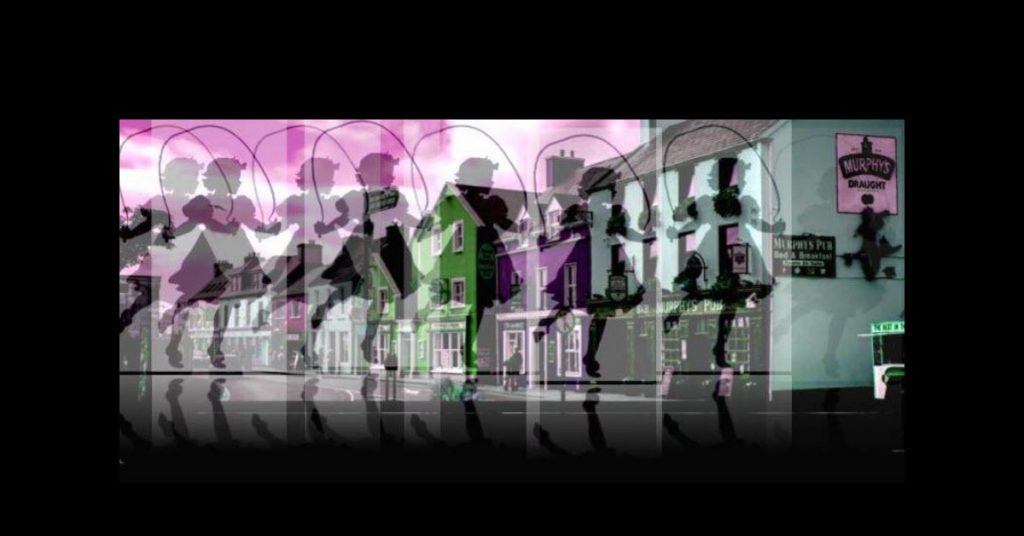
NOTHING IS EVER MISSING IN THE TOWN OF MISSING GIRLS by Meghan Phillips
There is a town where all the missing girls end up. They wander in from the surrounding woods, dark-eyed and dirty, holding one bloody tennis shoe like a prayer. They thump in the trunks of parked cars, duct taped wrists sticky and raw. They appear in grocery store aisles, storm cellars. It always takes time to convince them they’ve been found.
There is a town where no one can sleep. A terrible smell seeps into the homes at night, finds sleepers in their bed. No one cannot find the source.
There is a town with a lake. Things wash up on its shore. Fish skeletons and bundles of vegetation. Car tires. Tennis shoes. Bottle upon bottles, green and brown and clear as a cry. Once, an antique pearl necklace. Once, a cloth bag stuffed with severed human hands.
There’s a town where every girl is given a whistle, useless as a bell on a house cat’s collar. By the time someone hears the shrieking, it is already too late.
There is a town surrounded by fields of wheat. A town surrounded by fields of corn. A town with a stone altar at its center where people leave apples and pebbles and little corn husk dolls, the names of the chosen tucked under their skirts.
Sometimes other missing things show up in the town of missing girls. Usually just socks without mates or small toys or the backs of earrings. Sometimes keys or rings. Dogs and cats will wander down the main street, hackles raised. The missing girls sooth them, feed them, take them in. The missing know how to care for their own.
There’s a town where everyone is missing a hand.
There is a town that holds the gates to Hell. Only the first gate is visible in daylight. The other six appear in darkness. The people of the town don’t like the Hell gates or the hell-seekers that tramp through their gardens or the satanic cults that burn rings in their fields performing dark masses. They have taken down the daylight gate, and a group of volunteers has promised to seek the other six and destroy them.
At night by the lake in the town with a lake, beautiful girls line the road that hugs its shore. They wait in their taffeta skirts and grandmother’s pearls for a ride. Sit with hands in laps and look out the window at the moon bobbing on the water, a perfect golden apple, and when the driver stops to let them out, there’s nothing but the damp outline of a skirt, the sweet-rot of dried apple blossom.
There is a town underwater. There’s a town that’s been burning for sixty years.
There is a town where the radio only plays one song no matter the frequency. One where televisions only play one film. There’s one where all broadcasts stop in the night, and the awake listen for messages in the static, watch for signs in the electric snow.
In the town of missing girls, the streets are wide and lush with trees. Sidewalks are even and lit by streetlamps that never burn out. Missing girls walk home alone at night. They don’t look behind them or start at the crunch of leaves under their shoes. They don’t curl their hands around keys spiked through fingers or pucker lips around plastic whistles. They know no one will follow. They are already missing. They are already home.
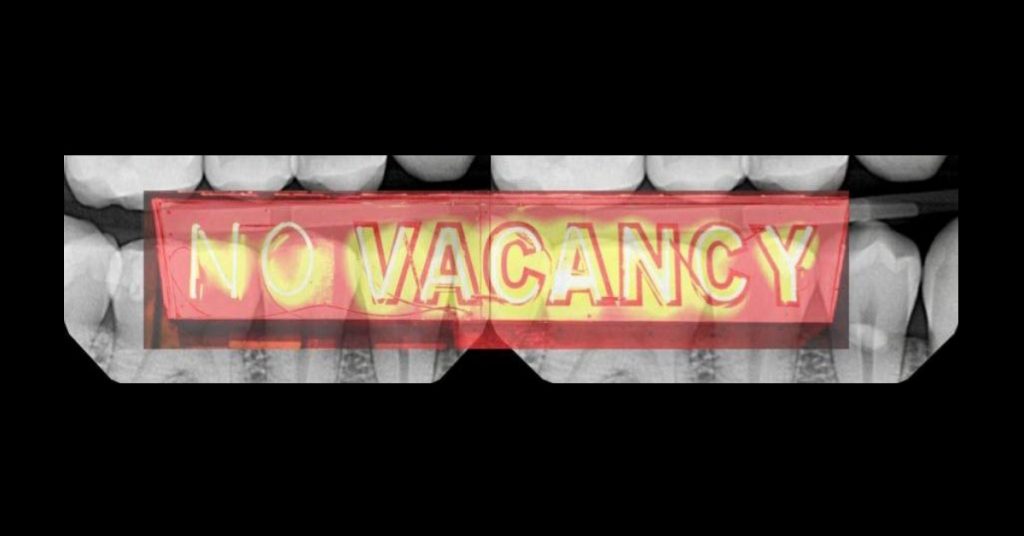
ROOM 321 by K.C. Mead-Brewer
You’re late. That’s what he says when she sits down at the crowded hotel bar. She doesn’t recognize him, but his smile, well. All women recognize that smile. She smiles back, a curve plucked from a well-worn catalogue of Please Leave Me Alone Please Don’t Ruin My Night Please Stop Please
You’re late, he says again, leaning closer. But don’t worry, your ice hasn’t melted yet.
He slides a sweating glass of something red as a red red rose in front of her. The drink leaves a slime trail in its path that makes her think of slugs and snakes, though she knows—lord, her sister never let her forget—snakes aren’t slimy, they’re just smooth. Smooth like feathers, smooth like lace, smooth like the pillow pressed down on your
Shit. She hasn’t turned away fast enough, hasn’t demurred with Sorry not interested or waved across to a stranger Honey, there you are, so now he’s smiling wider at her, showing teeth. He’s got something black caught between two of them.
She can already smell his offered cocktail, candied and cloying, clogging the air like the stink of Bluebeard’s lilies. Bluebeard would’ve had a time, a time, a time at a hotel this fine. So many heavy wooden doors with so many old-fashioned skeleton keys. A misting of soft, shushed maids to clean up the messes.
He nudges the drink closer. It isn’t poison, Alice, don’t worry. Just something to make you feel small, so small. I could fit you in my pocket, my sweet little doll.
Sometimes she wonders about things that make no sense, like maybe she really did have a date with this guy but contracted amnesia, and can people even “contract” amnesia, is that the right word? A headache buds just between her eyes.
Thank you, she says, hating herself because THANK YOU, really? Thank you, she says again, but I don’t drink.
Great. Smooth. Now he can lean in even closer, his breath on her cheek, and say, But you came to a bar?
She lies, I’m waiting for someone.
And you’re sure it isn’t me? He smells worse than the drink, sliding the glass in closer, himself, the glass, himself, until they both threaten to fall into her lap.
She should stand up and leave, and she almost does, she almost does, except she sees then what she missed upstairs in her room.
That crust around her fingernails, down deep in the cuticles, coiled and red and how did I miss this? She scrubbed everything so carefully.
She’s always thought fingernails looked like scales, a wink from some distant reptilian ancestor no one dares acknowledge. She curls them into her palms as calmly as she can. Snakes are vital, her sister told her. They keep rodents from overrunning the world.
I’m sorry, she says for the second time tonight, I’d really rather be alone.
But here he is leaning in closer with his smile and his drink and that thing between his teeth, and she wonders, she really does, how much more she can swallow.
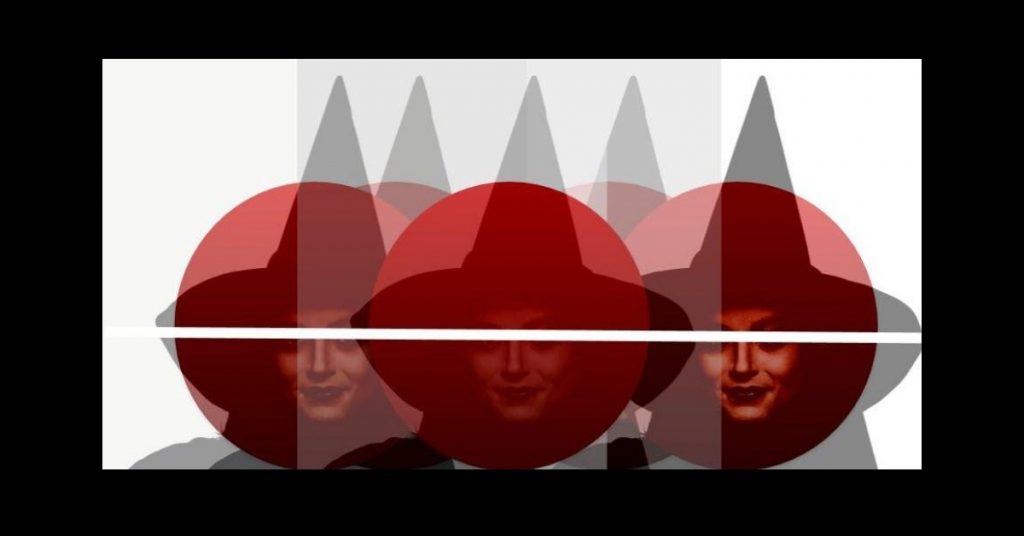
THIS SKIN YOU CALL YOUR OWN by Chloe N. Clark
He told me he didn’t believe in witches. We were on the floor of my apartment, half undressed while he used one hand to unbutton my jeans, when he said it. Out of nowhere.
“I don’t believe in witches, you know,” he said. He began kissing down my neck, hand slipping beneath my jeans.
“What do you mean?” I asked. My own hand slid down his stomach. He let out a short exhale of air.
“Like everyone told me you were a witch before we hooked up,” he said. I could hear the excitement behind his words, the thought of being with a witch edging against his desire to make him seem different from all the others who wanted me, talked about me.
I didn’t speak for a moment, tracing my fingers against the skin of his stomach before moving my hand lower on his body. He was warm, and I could smell the faint ache of sweat on him.
“They said watch out for her,” he continued. “They said you’d want something from me. That you’d only like it if you could get something from me.”
I applied a little more pressure with my fingers. He pulled in his breath. His own hand slowing. I wondered how much I could make him want me. There’s a pleasure in being wanted. Though nothing near to the pleasure of what I want from them—that slow unspool of darkness. I shifted away from him and began to kiss every inch of his skin. My tongue on his skin. I could taste his sweat. It was salty at first and then it was the coffee he’d drunk at work—sharp, slightly over-extracted espresso, that hint of latex. I went lower down his body, past his stomach, his back arching slightly. There was a memory in him, that he didn’t even know he’d kept, of earlier in the day, he’d been watching a woman across the street talking to her child. The woman was crouched so that she and the child were at the same height. Her coat was bright red, a dark blue scarf, and he’d remembered his mother once scolding him at a park. She’d stood above him, never deigning to be at his level. He didn’t remember her words. I ran my hands up his thighs, pushing the memory out of his body. I knew he’d never know it was gone. I wanted him thinking of only one thing. He needed to only be here in this moment, this pleasure. The dark should be the furthest from his mind. That’s how I’ve always liked it. I needed to be able to take what he wasn’t watching, a magician who keeps your eye on the wrong card.
He said my name. I used my tongue, my lips. He lost his words. I, on the other hand, had a thousand languages at my disposal. I’d learned how to shape my tongue so many ways, knew how to use it to make others speak to me. I moved my tongue, shaped my lips, made his body yell to me.
He had this recurring nightmare that he woke up on an island in the middle of nowhere. There was no one else there. He wandered around and around, calling out the names of everyone he’d ever known. No one answered. And then someone did. Some voice called out from beneath the sand. It begged him to run. Run away. So he tried. He’d run to the water’s edge and try to get in it, to swim away, but he couldn’t. The water would be glass or boiling hot or freezing, freezing cold. But he’d try, he’d keep trying, as the voice kept screaming for him to run and he’d know something was coming for him. Something that he’d never want to know.
This I liked. I held it closer to myself, letting it slip into my skin, run its darkness into my blood. It felt so good flooding my body, down to the tips of my toes.
He was so close to release. His whole body thrummed with it. And then he said, “Wait.”
I stopped.
He said, “I didn’t believe them.”
And I knew what he meant, how much he thought everyone was telling lies about me but that he’d hoped they weren’t but didn’t want to give in to believing. Men like him loved witches, loved that hint of danger. I knew how much he’d wanted me. I could feel it on him—it came off of him like a bit of extra warmth, standing too close to the fire on too cold of days.
I moved again, long enough to say, “Shhh.”
He nodded. There was sweat pooled in the hollow of his throat, it glistened. In that light, he was more than beautiful.
Of course, everyone was, when I’m there with them, when I’m pulling the darkness from their bodies. They look so filled with light if only for a moment.
I used my tongue, shaped my lips around him. I spoke a thousand words he wouldn’t hear, just my tongue tracing the letters, rolling the syllables.
The words let everything he’d ever been scared of into my body. It filled me up so quick. Everyone carried so many tiny fears. They cascaded into me, every part of me was so filled with him. There was so much power in knowing every darkest corner, every monster under the bed.
And then his body went still, only his fast breathing, heart pounding to show he was still there.
I lay beside him. Everything ached in that pleasurable way, like after running a marathon. Time spent well. Sometimes, often if I was honest, I wondered what it was like for them. If afterwards, they went out knowing what I’d taken. If they felt lighter or if it didn’t feel like anything at all. To go into the world, unafraid, must feel like something.
“What are you?” he asked, smiling.
“I’m a witch,” I said. But he didn’t believe me. They never believed in witches really.
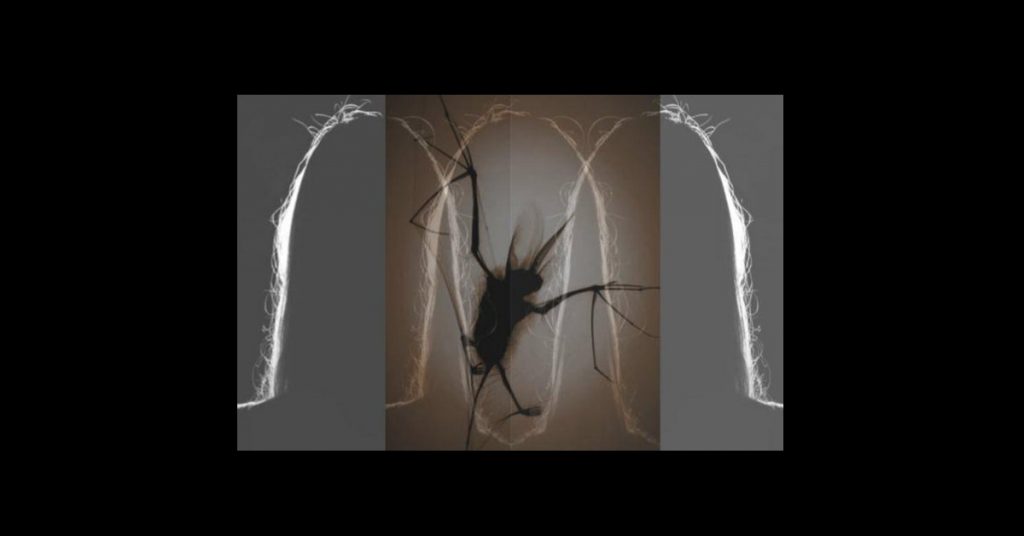
THAT GIRL by Kathryn McMahon
If you’re going to listen to this story, you better really listen because that’s what it’s about: listening. You better scoot closer in case you miss something, in case a log pops, in case the wind picks up, because it’s bad luck to re-tell it, any part. The girl in this story will see to that.
She could be almost anyone. She isn’t beautiful, or maybe she is, or maybe it doesn’t matter. She’s been watching you, waiting to meet you. To get close. To listen to what you have to say as she bites her lip or runs her tongue across sharp, needle teeth that she files herself. Some say she wears red because she likes red-on-red, and while new blood dries brown, she likes that, too. Blood is easily lost against black, and this girl has nothing to hide.
The best way to know her is by the bats she keeps in her hair. She wears it up in a messy bun and petite, fuzzy bodies droop down and around, as if she were Medusa but with more cunning and a detachable wrath. Of course, they aren’t always nesting. These bats? She sends them out to hunt while she wanders neighborhoods, stealing secret spare keys and loosening bike chains. Letting you know she’s around. And that’s on one of her good days. Heaven forbid you catch her on a bad day. Or she catches you. Are you listening?
It’s a shame no one remembers what she was called before the dying undid her. She became someone who things had happened to. Bad things, of course, because no one talks much about the good that goes on, and people talked all about the bad. They blamed her for it. Like she was a tiny black hole sucking bad toward her, not a girl in the wrong place at the wrong time. Not just a girl being a girl.
When she was dead, still a girl because that’s all the time she was dealt, she came back. People were talking about what had happened to her so much so that she got sick of it. Just sick of it. She collected herself, all her broken bits and moldy pieces, and crawled right out of her grave and decided to make everyone talk about the things she actually did. The things she could control. And what does she do with that voice of hers, the one that was squashed, beaten-down, ignored? If you hear your name and turn to find no one there, that’s her. She’s coming for you. Readying your story in her mouth.
Her bats don’t only swoop after mosquitoes and moths. They’re searching for lies, for willful misunderstandings. They don’t drink blood—much. She’s no vampire queen. Though, if they’re a little thirsty, because it’s a warm night and they’ve been out hunting awhile, their delicate toes will land on your collar and they’ll creep toward your neck with eager, clicking fangs.
Are your ears perked for that brush of velvet? For that electric chirp of sonar?
When they get really hungry, when it’s one big whopper stinking up the night breeze, something awful about this girl or some other, about a woman, about women; when they hear She was asking for it. Her skirt was tootighttooshorttoo—. When they hear She’s lucky he paid her any attention. She should dress more like a girl. When they hear She shouldn’t have had that much to drink. What did she expect? The bats recognize their quarry.
They’re not only looking for that boy at the party, not only for that man in the car. She’s sent them for the storytellers, the owners of those lies. For their tongues or, rather, something past them. To the bats, those lying tongues licking chapped lips look extra tender and wet and juicy. Pure temptation. All they need is a point of darkness deep in those throats, tiny black holes sucking them in, and oh, how they want to be sucked in. To catch your lies and stuff them back down your throat. They see that hollow behind your teeth and pop through, one after the other. Because the girl? She wants in, too.
Once they’re inside, don’t try to scream. Your tongue will feel like a mechanical bull trying to kick free. But these cowgirls are going to win. The fingers at the ends of their wings hook on like a stranger on your car door. A few quick rips and their toes whisper past your taste buds to the meat underneath. They chew and chew. It is so soft, your tongue. They eat their fill, first one, then another, shredding their way down your throat, making a cave of your body like you did to the truth about that woman, that girl. Making you into a welcome mat for one such girl who will find you on the ground, right, right, like that, half-drowned in your own blood, sagging out of life.
The bats snap open your ribs one-by-one, a sound not unlike logs crackling on the fire. They’re stronger than they look, like that girl.
She puts her hand on your shoulder. Her fingers graze your arm, almost forgiving you. Almost. But there’s a hole where your sternum should be, and she reaches in, up through your throat, and since you’re useless and forgot how to tell the truth, she puppets your jaw for you. Cradles it. She’s deep inside you, firm and gentle. But that’s a lie. She’s not gentle at all. A bat folded where your tongue should be twitches at her touch. With a nudge or two, it flies free, carrying the truth. Now, lie still. Hush.
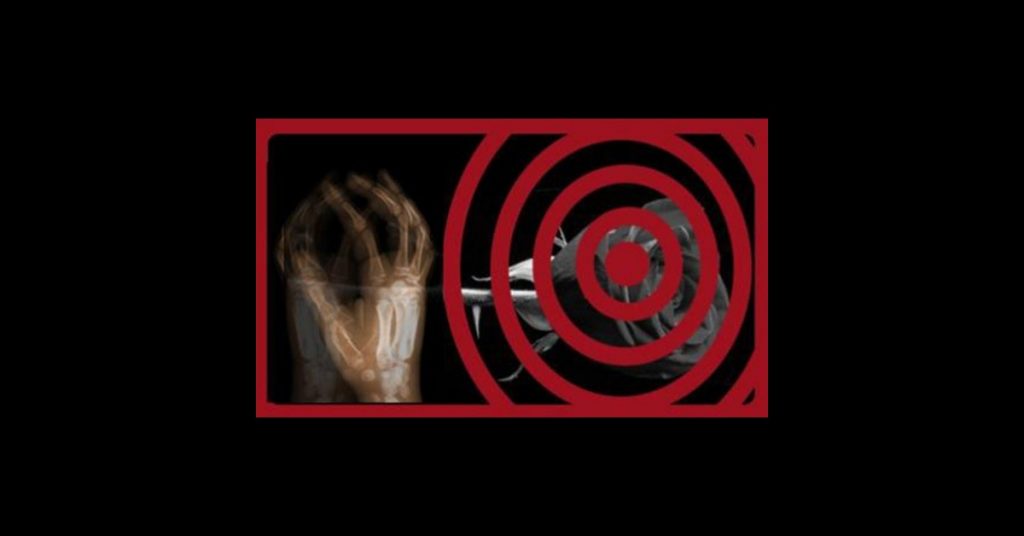
THE ROSE by Joshua Hebburn
Driving back after the funeral, he stopped at a Target to get Starbucks and take a piss. He'd stayed overnight at a motel, and he left the motel early in the morning to make it back east by driving all day.
Driving that morning he thought of the black and white picture of a Joshua tree in the room. It was the only thing not reusable in the motel; it was the sort of picture somebody would take in an intermediate photography class, not something tastelessly good the owners would get in a bulk purchase of decor.
There was something too amateur—too ambitious but clumsy—about the composition of this picture of a Joshua tree, and the overexposure of the image—and there was the starkness of that, it was the wrong tone for a motel. It made your eye stop, and in a motel you shouldn't seem to have had eyes.
He'd drove—drove not really seeing anything but the spiky black silhouette of that Joshua tree, and the grainy white of the blown-out desert behind it—and the gray of the highway, the tires below the bumpers, and the loss of time they represented.
The Target was empty this early in the morning. The aisles were pristine, walls of familiar merchandise waiting brightly in fluorescent light. The store seemed eager—except for a yawning cashier. It was stunning after the monotony of the drive and his thoughts.
When he went into the bathroom, a light on a motion sensor turned on. There was a pleasant artificial cherry smell. It was all gray slate, white porcelain, straight lines. It was easy.
He did what he came to do.
Going to wash his hands, and in the mirror he noticed the boots in the little stall. He'd assumed he had been alone pissing because of the motion sensing light—that was wrong.
The boots were cowboy boots. They had dark bluejeans tucked into them. The jeans were stiff tubes, almost hollow seeming. The man's legs must be thin.
The feet were planted far apart, as if the person in the stall were bracing for one to give the devil. But the jeans weren't down.
Embroidered on the side of the boot closest to him, which was almost under the gap of the little stall, was a rose.
It was the kind of rose you would imagine tattooed on the bicep or chest of a biker or sailor.
The bathroom was new, even the grout on the floor by the boot was clean and white. The boot with the rose also appeared to be new. The red threading of the rose shone like silk. The leather had not yet crinkled or cracked. The leather wasn’t dusty or soiled. The point of the boot was sharp.
The figure was still and quiet in the stall. The sound of the ventilation system filled the room.
He looked away from the stall, the boots, the mirror. He rinsed his hands in the automatic faucet and wiped them on his slacks. He pulled open the door and went out.
The episode of the man in the stall was one of the small strange occurrences that we overlook, and then forget, in the course of a life.
We have all had something like a man staring into the window of our house from the street in the middle of the night—something like being in the fog on a beach in the morning and coming upon a rotten seaweed-entangled heap that gives us a feeling—had something like a lost object turning up after a few days in a place we knew we didn't leave it.
He went and got a venti iced coffee. He added whole milk and three paper sachets of sugar. He was in for a very long drive.
He listened for bootsteps behind him as he made his way through the empty store to his car. He heard only ice shifting against plastic and ice.
Years later, looking through all the stuff he had to sort through a few weeks after the next funeral, he turned a page, and there were the boots. They were on his Dad. His Dad had an armful of Mom. They were by the bulk of a redwood. They were young.
He put the album down, he got into his car, he turned the key. He idled in the driveway. He noticed he was covered in a sweat gone cold.
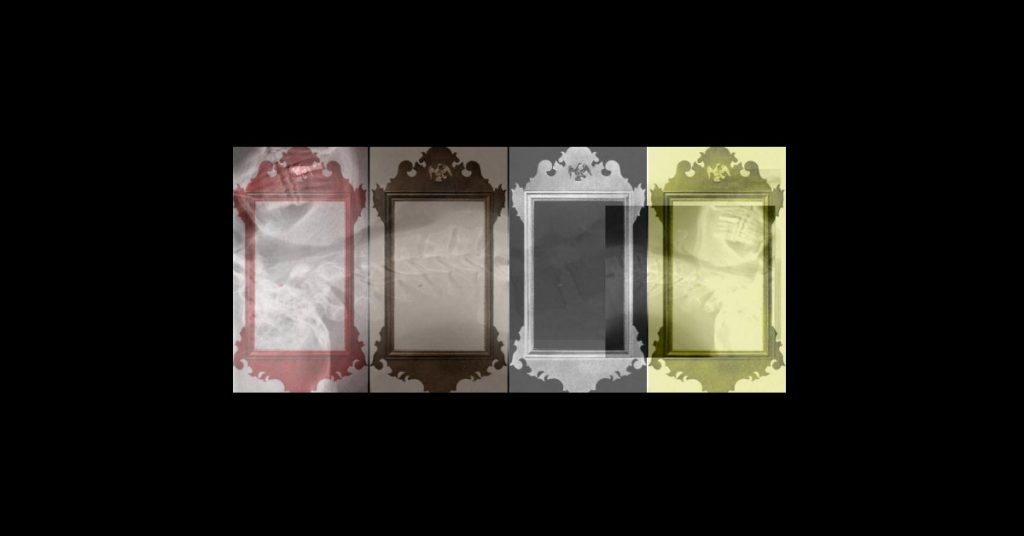
CATOPTROMANCY by A.V. Greene
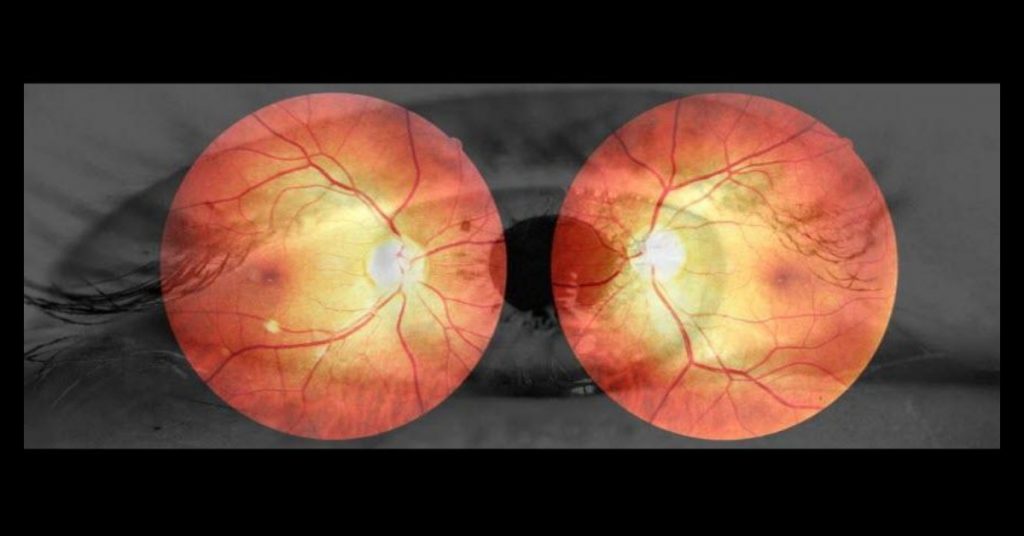
GLASS by K.B. Carle
I don’t remember the before.
I’m not really sure I want to.
If I went searching for a lost past somewhere in the recesses of a brain that dissolved when I died, would it really belong to me once found? I’m no longer the person I was. In fact, I’m not even a person anymore. Back then, I assume, I had skin, a tongue, a nose. A voice a family might recognize, if I had a family. Fingernails I could paint, or chew when nervous. Eat or spit out of the side of my mouth.
People can be gross or clean. Can inhale, exhale, sigh, hold their breath until their faces changes color. People can roll their eyes, make their tongues look like clovers, pluck their eyebrows, and lick their lips.
No one tells you about the things you lose.
Only you’re dead and here’s what’s left from the before.
I keep my before items in a black pouch Anubis lent me. I didn’t plan on keeping the pouch, but since he never asked for me to return it, I guess it’s mine. He’s good like that. Inside are shards of various sizes that don’t fit together. I used to try to make these pieces make sense, but every time something was missing. Each shard has a unique sequence of blood droplets that sometimes trails over jagged edges. Alone, I use them to perform the Rorschach test. Maybe my memories are connected to the psychological. Sometimes, I see the butterfly humans claim to notice when staring at ink on paper. Mine is red with wings expanding until the glass ends and the wings break at the tips. Sometimes, during the seconds when no one is dying, I see blades of grass tied in knots. They remind me of war, of people tangled amongst themselves over food, safety, the final shot.
Most of the time I see dots.
No one tells you about the things you miss.
Then, there’s the glass eye. I like to place it in my right socket and see how long I can balance it. I pretend I can see the deserts of Egypt where Anubis and his family lives—haunts—I don’t really know what Anubis does in his spare time. I think I’d enjoy observing what the Egyptian god of mummification and the afterlife does in his spare time. It’s not that Reapers can’t see, we can, but it always feels nice to be able to look at something rather than just see it. I think it does anyway. I can’t remember the last time I had eyes, other than this one. When my glass eye falls, I slip my hand between my ribs and catch it. It’s a skill I’m not proud of. A constant reminder that I’m literally empty inside and that my body may not have an inside because now there are no walls, just bones and space.
I’m now a being made up of empty spaces.
No one tells you about being alone.
The iris of my glass eye is gray, which used to be disappointing but now this is something I accept. I mean, it would be better if my glass eye contained some kind of color. Blue is my favorite but at least it’s not black like everything else in death. Its glass edges are always smooth compared to the bits of bone that make up my skeletal fingers and I like the sound of it rolling along my arm, the feeling of something looking at me while balancing on bone.
If Reapers had parties, I would show the others a trick. How I can cock my head back at just the right angle and make my glass eye disappear from my right socket. The disappearance would allow the Reapers to remember swallowing, hunger, and chewing. The weight of a stomach. How spit can form rivers collecting on their tongues and drift just below their uvulas. Of course, I’d make my eye reappear, not in the socket, but clenched between my teeth. If Reapers threw parties, they would applaud my creativity, my imagination, notice how the glass eye never blinks or shatters.
But, since they don’t, I keep my trick to myself.
No one tells you what was left behind.
I like to think the eye is mine, even in the before time. That I had gray eyes—or eye—and crafted stained glass windows that people still work hard to preserve. Maybe my creations capture the gazes of many with different colored eyes because they notice the specks of my blood embedded in the clear spaces of my glass workings.
Maybe I bled butterflies.
No one tells you about the before. Only that you died. That you were chosen to be a Reaper.
And they never tell you why.
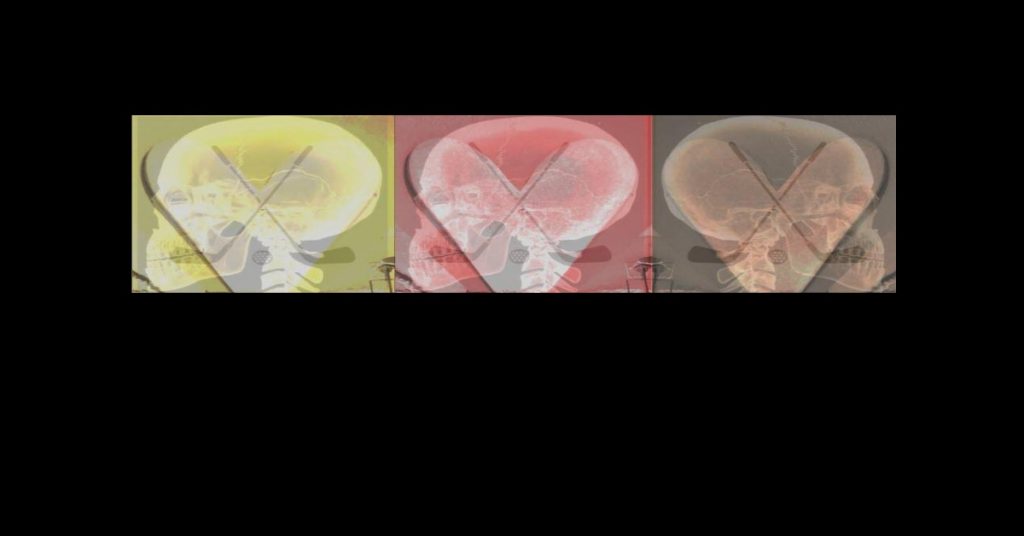
A SPECTRE LURKS AT THE PUTT-PUTT ON RIVERSIDE by Keef
The ghost in our town haunts the putt-putt golf course with the big Peter Pan statue out front. The haunting is the only semi-interesting thing about the course, and even the ghost is dull. Kyle from AP Biology works the concessions, wearing a paper hat and staring at his phone. Hot dogs are only a dollar, but you get what you pay for. All the holes are pretty busted, and there’s always a parade of sad single dads tromping around the place with their kids, trying to make up for neglect and inattention and assumptions that they’d always have what they love.
Todd wanted to see the ghost and I wanted to take him on a date, so we headed down there on Friday after sunset. He drove us in his mom's minivan. I warned him beforehand that the ghost wasn't very cool; it was just a ghost. It wasn't scary and it wasn't some gothic spook in a shroud whispering cautionary tales about the mistakes it made in life or whatever.
"It's just a guy," I said. "You sometimes have to wait for it to move if it's in the way."
But Todd still wanted to see it.
It took us a while to pick out putters that weren't too bent-up from douchebags bashing them against the statues. I bought us a couple hotdogs. Kyle said "Gentlemen," and gave us the nod and only charged us half price. We still got what we paid for.
"These hot dogs are so bad," I said. "You sure this is what you want? A lame ghost and lousy hotdogs? It's not too late to let me take you to IHOP."
"You're just scared," he said. "Of the ghost. Or maybe just the, you know, the eerie vision of the sad dads. Under the phantasmagoric light of the, uh, gibbous moon."
Sometimes Todd is the funniest person in the world, so I kissed him.
He’s also really cute, especially when he's concentrating on putting. His tongue sticks out between his teeth, and if I say something to break his concentration, his shoulders slump and he throws his head back and rolls his eyes and makes an exasperated noise, which is adorable, and I shouldn’t do that but it’s so hard to resist.
The seventh hole is a bull rearing up, but one of the front legs broke a long time ago, so now it's sort of kneeling. I was trying to chip the ball up and bounce it off the bull's nose to make Todd laugh, which is hard when all you have is a putter. All the hair on the back of my neck went up. The chill started on the soles of my feet, like someone massaging them with seaweed.
"Wow," said Todd. "You feel that?"
"Yeah," I said. The icy feeling slid up the back of my calves and circled up and around my inner thighs, settling in the middle of my torso. "I should've brought my hoodie."
"Look," he said, and pointed.
The ghost hovered on the brick pathway between Todd and the eighth hole. It was wearing a polo and khakis, which faded and became transparent above what probably would've been a pair of Sperrys. It had a dad-bod paunch, a pancake ass, and no head. Its clothes and skin were the dirty white of the moon in an old mirror.
"Jeez, gross," I said.
The cold clenched in my center, in my belly-brain, which Mr. Jamison from AP Bio calls the "enteric nervous system." It runs from the throat to the anus and has more neurons than the spine. It's what clenches when I cry, warms when I laugh, and turns to warm goo when I look into Todd's eyes in his basement. When I saw the ghost, frozen fingers slithered around it and caressed my xiphoid process into an icicle.
I shivered. "It's a lot spookier than I remembered."
Todd put his arm around me, which made me feel a little better.
The ghost slowly reached a diaphanous hand into its pocket and withdrew a phantom phone, which it held up in front of where its face would've been. Wind whistled over its open windpipe, low and hollow, like a freight train far away in the night.
"God damn," I said.
The ghost lowered the phone. The visible muscles in its neck stretched as it turned in our direction. It wheezed and produced a deep rumbling sound, the suppurating beginnings of what might have been a yell if its vocal cords had still been in place.
"Excuse me," said a sad dad behind us. "If you're not going to putt, can we play through?"
"There's a ghost," I said, and pointed at the ghost.
"Yeah, I know," he said. "Can we play through or what?"
I picked up my ball and stepped back. He and his kids bustled through, putted, and moved past the ghost to the eighth hole.
I held Todd close to me and we watched the ghost lift the phone once again and meander down the pathway. At one point it was looking at its phone, not paying attention, and its invisible feet caught on an uneven brick. It pitched forward, did a little two-step, caught itself, and kept shuffling. The icy fingers caressed my heart.
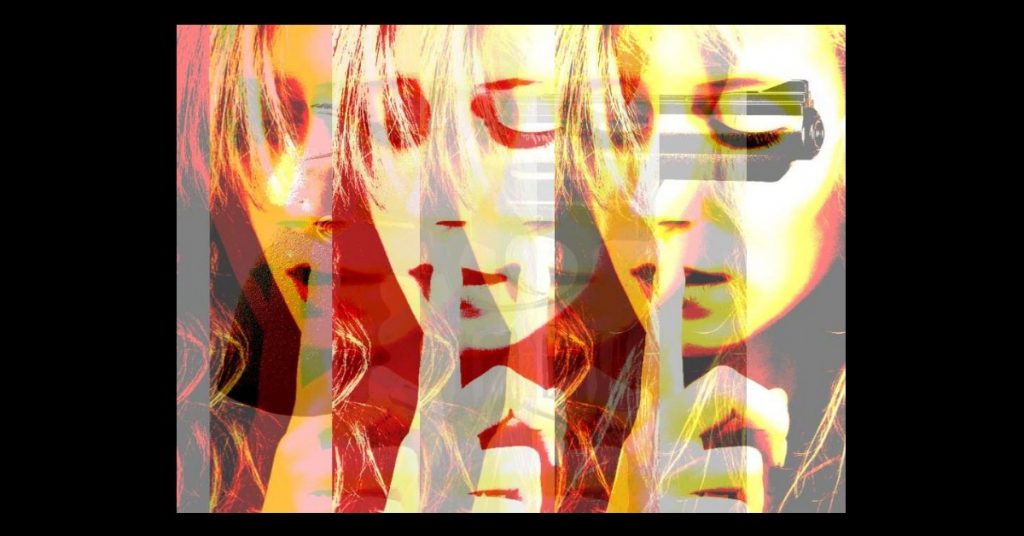
I PROMISE I WON’T SCREAM by Jan Stinchcomb
They say you did it.
Please tell us how it went down, otherwise we will never be able to stop parking in front of your house on Hibiscus Way. The woman who lives there now glares at us from the driveway. She got the place for a good price because of what happened, but by then most of us were gone, sent away in our parents’ last attempt to save us from the bad scene.
We have returned, as all children do, because we have nowhere else to go.
The sunlight in our hometown knocks us out. It follows us everywhere, even in our dreams. We feel safest here, but only because we know the depth of our secrets. It’s like trusting our feet will touch the bottom of the pool at the rec center.
#
Once we park here, we can’t leave. Sometimes we tell stories of the blood you spilled, and sometimes we sit and wait in brittle silence. Sometimes you are good enough to appear.
Look––someone’s in the window! There she is! That’s her face!
Now we’re all screaming.
Even the woman in the driveway is whirling around, trying to see what we’re screaming about. Christine puts her foot on the pedal and we fly away. Before we get to the first stop sign, our screams have turned into wild laughter, scattered tears.
We should have stayed, I say in a voice so small no one hears me.
Later on, while I’m lying awake in bed, I can see your face floating above me until the sun rises. Your furious face. Your center part. Your brown hair is so long it hangs down and tickles the tip of my nose.
You haven’t changed a bit.
#
A hammer and a gun. Blood all over the master bedroom, the carpet saturated. You burned the bodies at China Camp. We go out there now to smoke a joint in that same spot where you thought fire could hide your crimes. You wanted a fairy tale, didn’t you, a world without parents? No more rules, no screaming fights, just their money and their house. We feel for you, especially when they blame you for your green eyes and witchy ways, or when they say you manipulated your boyfriend into committing murder. He’s stuck in prison, they tell us, but they forget you were only sixteen, an abused adoptee.
We remember you, the saddest girl in school. You made us feel like we had no problems. Pills. Shoplifting. Pregnancies. Hidden bruises. Dreams we were afraid to speak. None of that compares to your misfortune, your curse, a mother-daughter tale of fiery rage that devours itself.
#
I go to the cemetery by myself and sit in front of your parents’ grave. It is the anniversary of the murder and I am all alone.
My parents would be so angry if they knew where I was.
I see you coming from afar. You’re wearing the same blue jeans and peasant shirt you wore in high school. Platform shoes. You carry a suede fringe purse with a long shoulder strap. It is you. It must be you. It is as if no time has passed.
Now we can talk about everything. Finally. I have so many questions for you.
But I panic as you get closer and then I bolt. I run on trembling legs past the crypts of respectable families whose daughters don’t do drugs or fornicate with older men. At the cemetery gates I turn, gasping, to look back at you.
Nobody is there. Not a soul.
#
You lived the teenage fantasy: you killed your parents.
When you disappeared from school, we thought you’d run away with your boyfriend, and then someone said they saw you at the market.
The market! We were disappointed, honestly. It was so ordinary. Why in the world would you be at the market? We would have thought you’d turn the house into a sex palace and drift away on a cloud of pot smoke.
We had no way of knowing murderers get hungry.
#
This town loves the dirt. They say you got off easy and went on to a life of petty crime. You go by many aliases. You’re an addict. A whore. A man who never lived here published a book about the murders; an artist did your portrait in graphite and ink. Despite all these attempts to fix you in place, you have disappeared.
A new theory emerges. That hammer. Your mother. It couldn’t have been your boyfriend, they say, it had to be you. All you. It was too violent, too personal. Your mother’s blood on your white hands. We’re going to drive by your house once more. We want you to walk through time and open the front door. We really need you to come out and talk to us.
Please. I won’t run away this time. I promise I won’t scream.
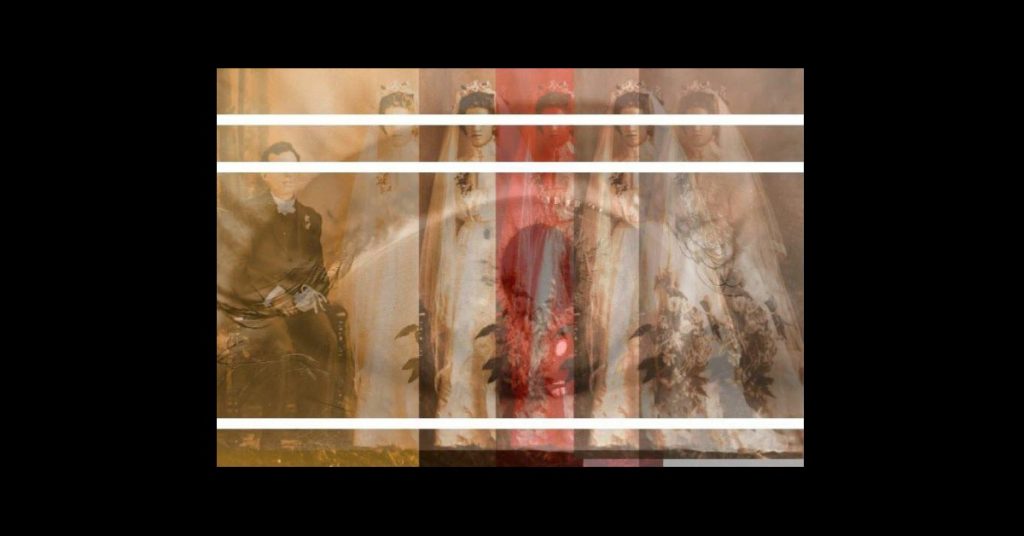
HER HUSBAND’S WIFE by Joaquin Fernandez
Her husband’s wife used to watch them fuck. This was back when it was still fun, back before her husband was her husband, back when her husband’s wife was still her husband’s sick wife, not her husband's dead wife. Her husband’s wife used to watch them, alive and cancer-free, snapshot trapped, posed happy in drugstore frames, from the wall, from the dresser, from the nightstand that they shook and shook and shook. She watched them while she was moved into hospice, coughing blood in deep, primordial growls. She watched them the day she died, sweaty with hunger while his phone rang unnoticed. After her funeral, she watched them play house, aprons and scotch and licked whipped cream. She watched until her husband took her photo off the mantle, replaced with her ashes. For a long time after, she would watch nothing.
It was the third year after his wife died, in the second year of their marriage, when she found the box. She had gotten used to finding him asleep on the couch in the morning. He had gotten used to her turning her phone over when he walked into the room. This was when they had moved beyond the kindness of excuses, bored in their certainty, like an endless day trip car ride, all worn out songs and tapping fingers, fidgeting into morse code how long, how long, how long do we have to do this?
She would have left if she hadn’t found his dead wife's things, basement deep in the cobweb dark, labeled neat and plain like we do to things we intend to forget. She had been getting her suitcase. She stood, looking at the box on box on box of the dead woman’s things. She wiped dust from the cardboard and thought of her husband, of their husband. She ran a fingernail along the scotch tape seam of the top box, letting her curiosity get the better of her. She felt herself cross from tourist to grave robber. She smiled in the dark.
Why shouldn’t I?
She opened one box, then another, then another. She read diaries and love letters and college transcripts, heady with the thrill of a voyeur. She plunged her hand into a box of lingerie, watching it disappear into the penned ocean of silk and lace until she grazed the dead woman’s jewelry box. Inside, her rings and necklaces, pearls and bracelets twinkled in the basement dusk. She tried them on, one at a time, then two and three in gaudy combinations. An hour passed before she heard her husband lumber upstairs. She slinked up to meet him, her suitcase long forgotten.
That night, her husband slept. She tossed and turned, scrolling her phone and frowning at the ceiling. She thought about lingerie and jewelry and her husband’s wife. She thought about all her pictures, staring at her, smiling at her from every room. She thought about the boxes downstairs.
Why shouldn’t I?
In the basement, she drank wine and wore the dead woman’s robe. In the dark, she paced, a ring on every finger, her neck straining under the weight of a dozen chains, gold and silver, the kind her husband had never bought her. She pawed through the lingerie, wishing suddenly for a mirror. She needed to see herself. She looked instead to the pitch black softness of the dead woman’s box, smiling, pleased, as something there began to stir.
She was still smiling when she woke, alone, aching, and exhausted, nude except for the dead woman’s wedding ring. She held it up to the morning light, a rainbow catching on the diamond. She thought, for a moment, about taking it off. Then the moment passed. She walked her house, naked under the dead woman’s robe, seeing it with new eyes. She dragged the dead woman’s ring down the hall, scratching last year’s paint job into a trail behind her. She tapped the ring on the counter, smiling at the pleasant clink of gold on marble while she took her coffee. She knew she couldn’t keep it, even as she held it up, admiring it on her hand.
Why shouldn’t I?
Days passed. Then weeks. She began to laugh at her husband’s joke’s again, though they still weren’t funny. She brought him scotch in the den, clinking the dead woman’s ring on a sweating glass. She did that thing he liked with the whipped cream, and always had to shower afterwards. She began to meet his hungry eyes at dinner, recoiling inwardly.
In the night, she slipped downstairs with a glass of wine, the dead woman’s favorite vintage, and dressed in her clothes. In the night, she couldn’t help herself. She lit candles and unpacked old photos. She began to mimic her make-up, perfecting the dead woman’s smokey eye before wiping herself bare with a tissue. Some mornings she woke in the basement, curled on a chair. Some mornings she woke alone in bed, with her husband still on her breath, sour and intimate, running her thumb over the ring, mouthing silently:
Did he know?
Did he notice the ring?
Would he help?
She stopped working. She spent whole afternoons pacing the house in the dead woman’s lingerie, tight at the belly, loose at the bust. She stared at a stranger’s face in the bathroom mirror, lost in the metronome of her own tapping finger.
He smiled the day she put the dead woman’s pictures up. He smiled when she served him dinner, bland, demure, and screaming on the inside. He smiled when, at last, she reached for him with one hand while her other tapped a frantic protest on the kitchen table, too loud to ignore unless he was trying. That night, after the scotch and the whipped cream, after the dishes were done, she sat staring at a glass of the dead woman’s wine and he called to her from the bedroom, with a laugh in his voice.
Are you coming to bed?
She stood without hesitation and fingered her ring. She checked her makeup and frowned at the stranger in the mirror before she slid off the dead woman’s robe. Her husband’s wife beamed at her from a dozen different picture frames as a smile crept onto her face and she opened the bedroom door, chirping in a stranger’s voice:
Why shouldn’t I?

